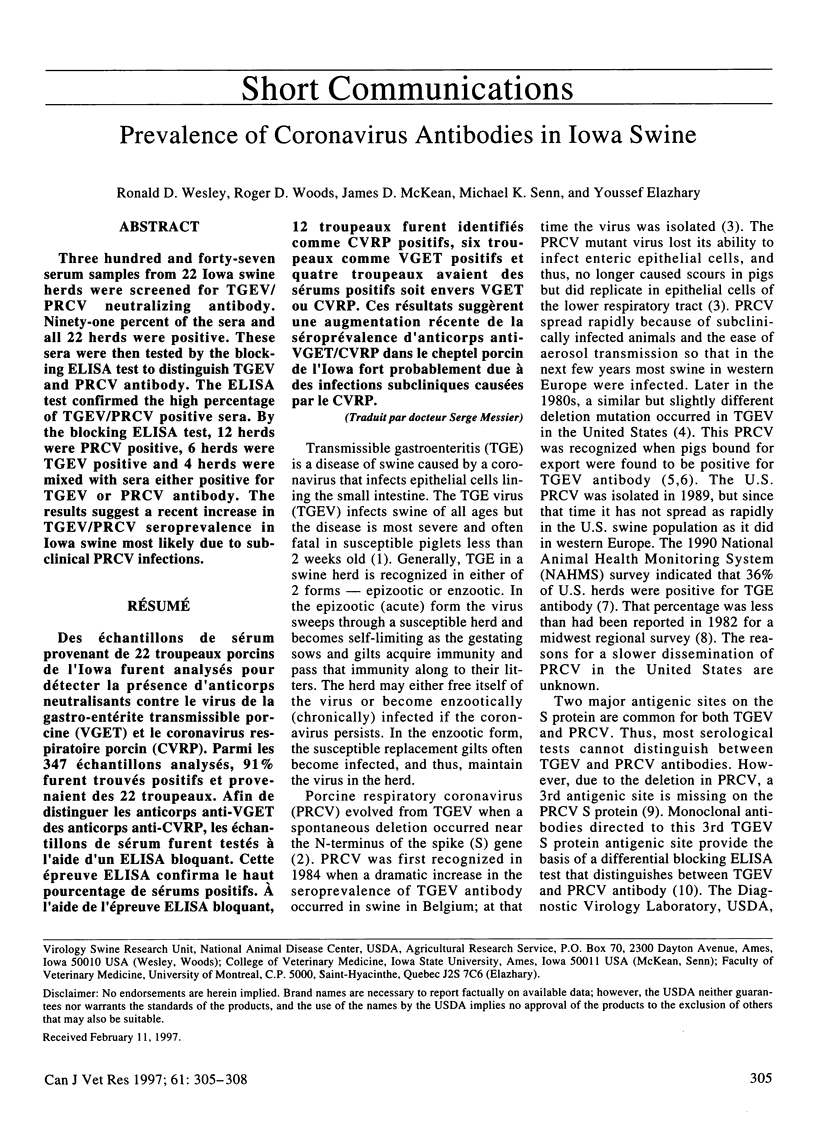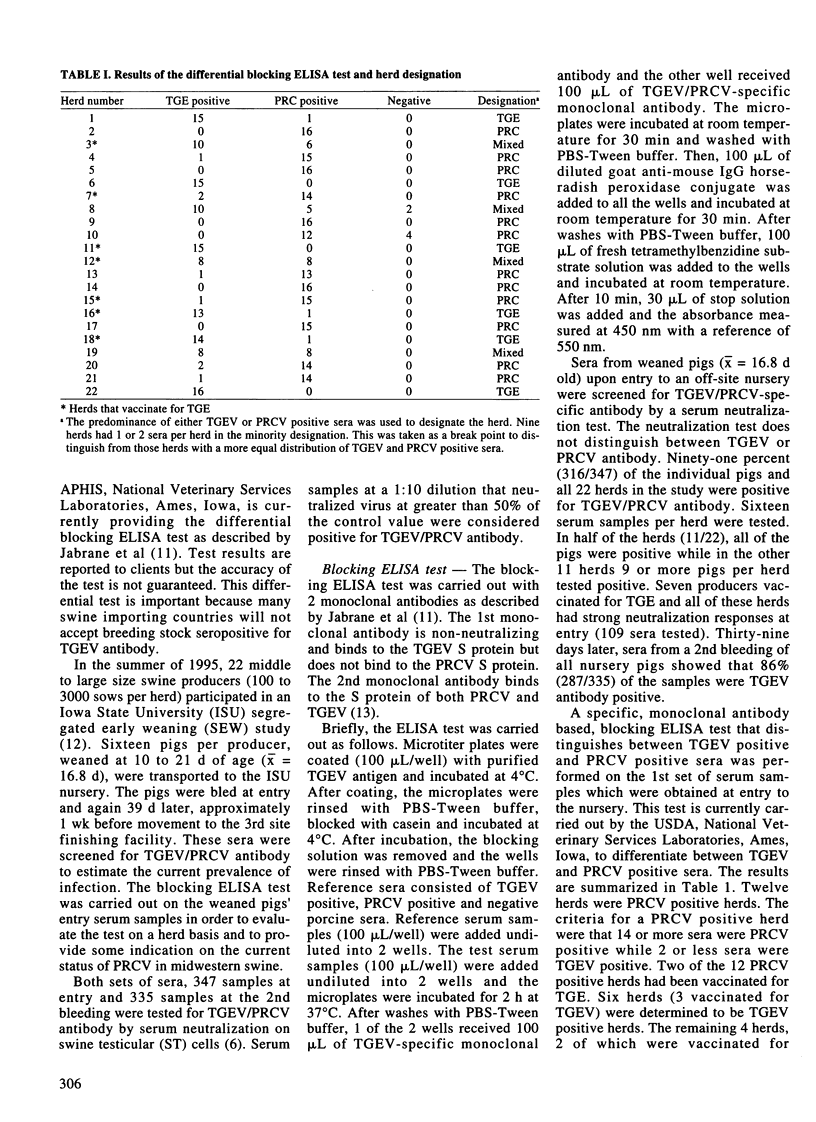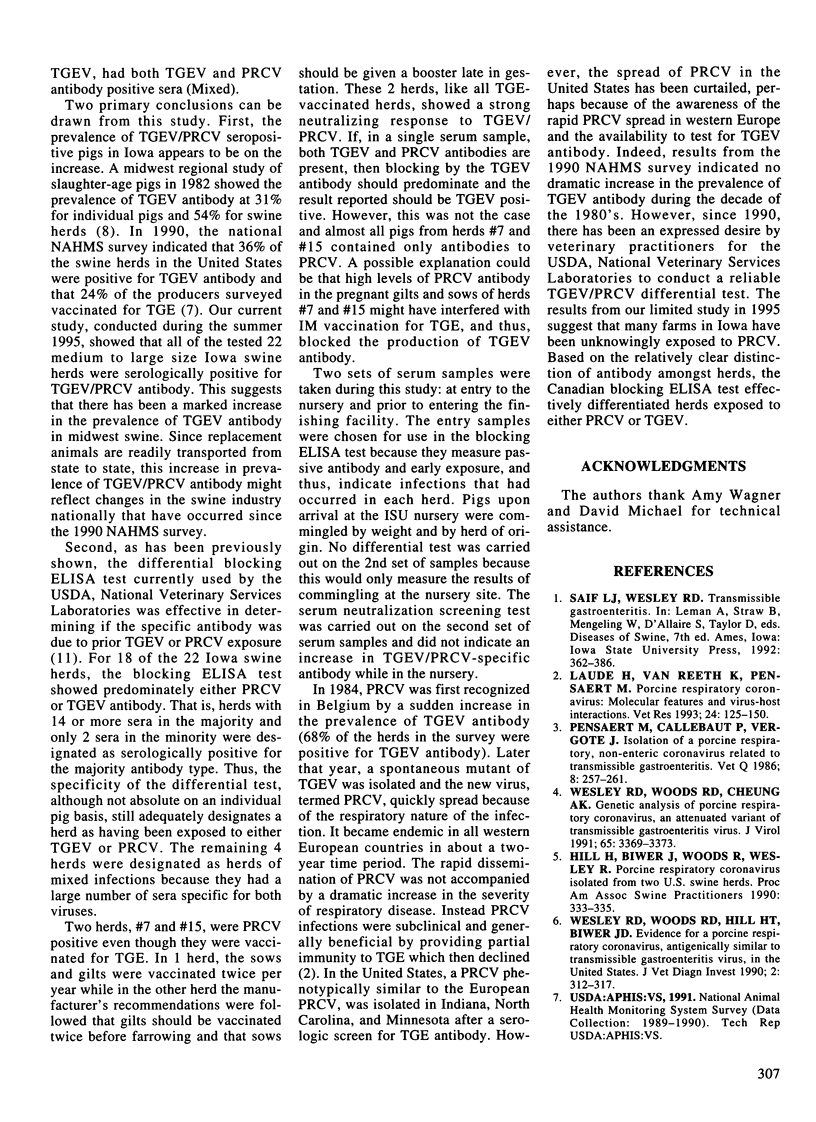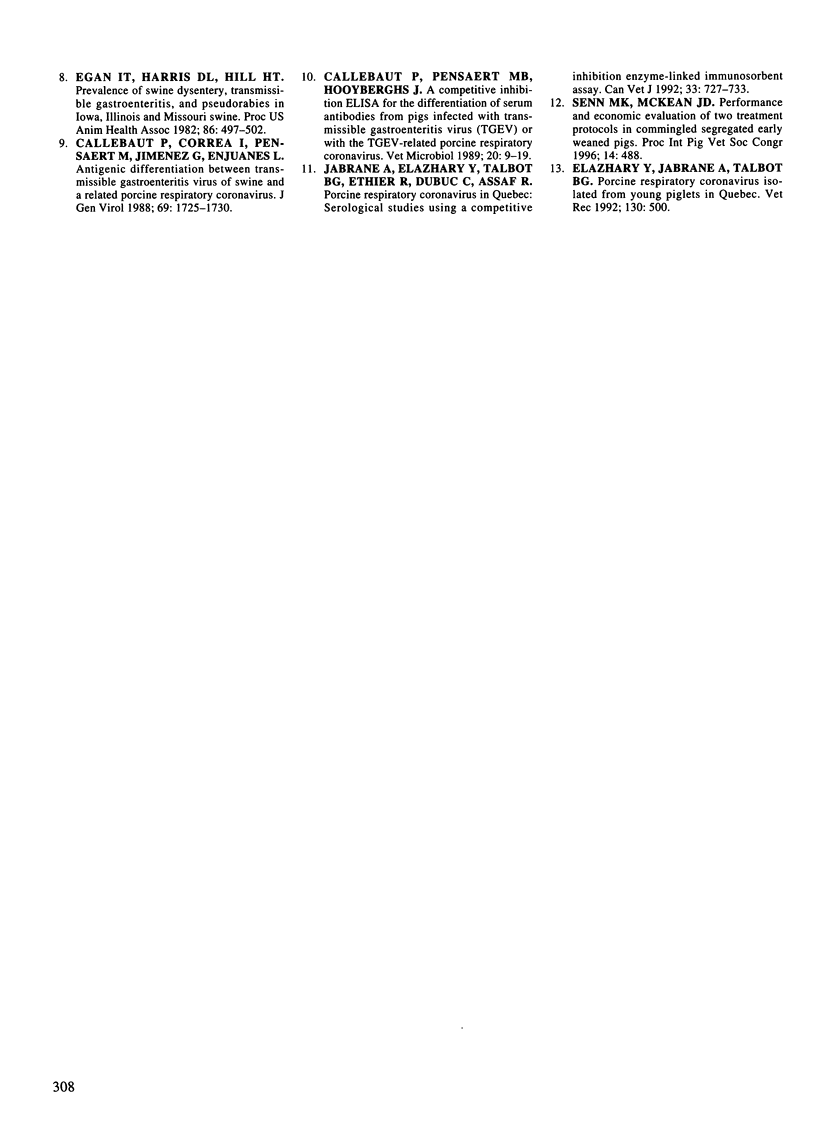Abstract
Three hundred and forty-seven serum samples from 22 Iowa swine herds were screened for TGEV/PRCV neutralizing antibody. Ninety-one percent of the sera and all 22 herds were positive. These sera were then tested by the blocking ELISA test to distinguish TGEV and PRCV antibody. The ELISA test confirmed the high percentage of TGEV/PRCV positive sera. By the blocking ELISA test, 12 herds were PRCV positive, 6 herds were TGEV positive and 4 herds were mixed with sera either positive for TGEV or PRCV antibody. The results suggest a recent increase in TGEV/PRCV seroprevalence in Iowa swine most likely due to subclinical PRCV infections.
Full text
PDF



Selected References
These references are in PubMed. This may not be the complete list of references from this article.
- Callebaut P., Correa I., Pensaert M., Jiménez G., Enjuanes L. Antigenic differentiation between transmissible gastroenteritis virus of swine and a related porcine respiratory coronavirus. J Gen Virol. 1988 Jul;69(Pt 7):1725–1730. doi: 10.1099/0022-1317-69-7-1725. [DOI] [PubMed] [Google Scholar]
- Callebaut P., Pensaert M. B., Hooyberghs J. A competitive inhibition ELISA for the differentiation of serum antibodies from pigs infected with transmissible gastroenteritis virus (TGEV) or with the TGEV-related porcine respiratory coronavirus. Vet Microbiol. 1989 May;20(1):9–19. doi: 10.1016/0378-1135(89)90003-5. [DOI] [PMC free article] [PubMed] [Google Scholar]
- Elazhary Y., Jabrane A., Talbot B. G. Porcine respiratory coronavirus isolated from young piglets in Quebec. Vet Rec. 1992 May 30;130(22):500–500. doi: 10.1136/vr.130.22.500-a. [DOI] [PubMed] [Google Scholar]
- Jabrane A., Elazhary Y., Talbot B. G., Ethier R., Dubuc C., Assaf R. Porcine respiratory coronavirus in Quebec: Serological studies using a competitive inhibition enzyme-linked immunosorbent assay. Can Vet J. 1992 Nov;33(11):727–733. [PMC free article] [PubMed] [Google Scholar]
- Laude H., Van Reeth K., Pensaert M. Porcine respiratory coronavirus: molecular features and virus-host interactions. Vet Res. 1993;24(2):125–150. [PubMed] [Google Scholar]
- Pensaert M., Callebaut P., Vergote J. Isolation of a porcine respiratory, non-enteric coronavirus related to transmissible gastroenteritis. Vet Q. 1986 Jul;8(3):257–261. doi: 10.1080/01652176.1986.9694050. [DOI] [PubMed] [Google Scholar]
- Wesley R. D., Woods R. D., Cheung A. K. Genetic analysis of porcine respiratory coronavirus, an attenuated variant of transmissible gastroenteritis virus. J Virol. 1991 Jun;65(6):3369–3373. doi: 10.1128/jvi.65.6.3369-3373.1991. [DOI] [PMC free article] [PubMed] [Google Scholar]
- Wesley R. D., Woods R. D., Hill H. T., Biwer J. D. Evidence for a porcine respiratory coronavirus, antigenically similar to transmissible gastroenteritis virus, in the United States. J Vet Diagn Invest. 1990 Oct;2(4):312–317. doi: 10.1177/104063879000200411. [DOI] [PubMed] [Google Scholar]


